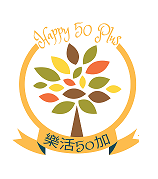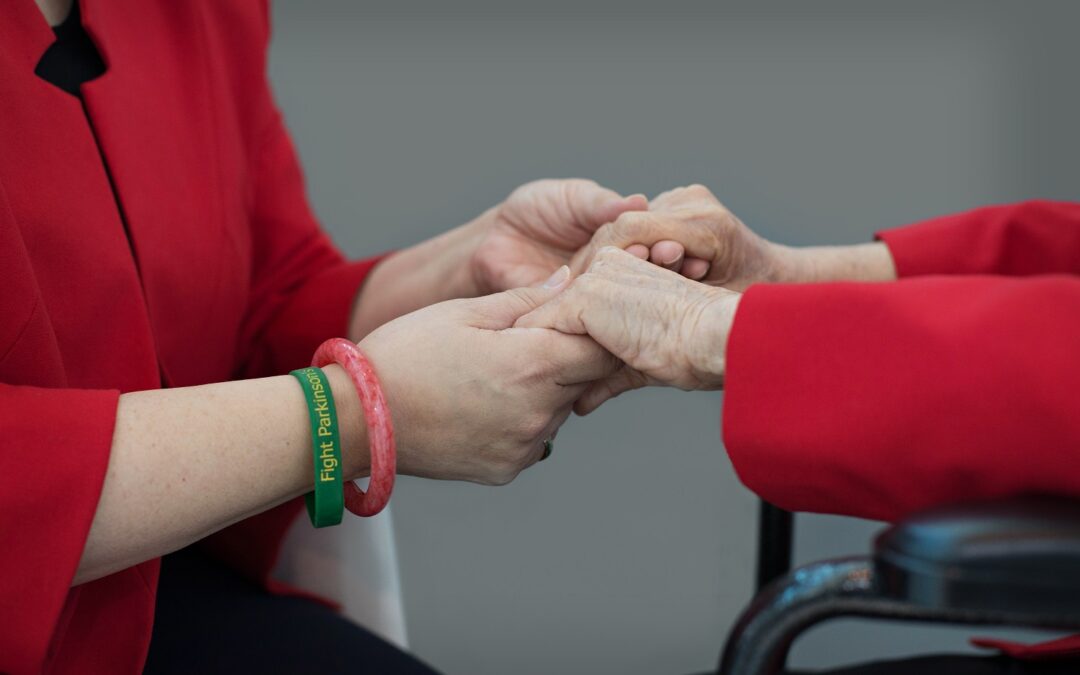We kick off Lily’s collaboration with Happy50Plus with an interview about her recent experiences as a family caregiver during the COVID-19 crisis.
Please describe your situation as a family caregiver during this pandemic.
I became my Mother’s full-time family caregiver after the passing of my Father nine years ago. Before that, I had been a long-distance caregiver, using vacation days to check on my parents who were living on the west coast at that time.
My Mom, who is in her late 80s, has a chronic, degenerative illness so my caregiving responsibilities have increased over time. I brought my Mom to my apartment building after we lost my Dad, so that means I did not make the choice to place her in any institutional facility. She has her own apartment literally across the hall from my apartment and I am always with Mom before/after her paid caregiver finishes her 9 a.m. – 5 p.m. shift. I am Mom’s “night-shift” caregiver, because she requires 24/7 care.
Despite all the many, many daily tasks related to Mom’s care, after hearing the news of the high number of deaths in elder-care facilities all around the country, I am relieved that I made the choice to care for Mom in a private home setting.
How have you coordinated care for your Mom during these past months as the COVID-19 illness has spread across the U.S.?
I had to make a tough decision: Mom’s paid caregiver relies on public transportation. This caregiver’s husband is an “essential worker” and would be out daily in the community. So, I made the decision to have the caregiver stay with Mom and we have had to pay for this care. It has been an unexpected expense, but we have created a safe, infection-free “bubble” around Mom.
I had left the workplace a few years ago, before retirement age, to coordinate Mom’s care, so since then I have done some work as a consultant. I am able to do my work virtually and also stay safe in this “bubble.”
When the stay-at-home order was announced in Washington, D.C., what surprised you the most?
I have always been proactive in planning; I could be called a “hoarder,” haha! Seriously, I have always planned ahead so as to have boxes of tissues ready in case a box ran out, etc. Fortunately, I have a supply of wipes, vinyl gloves, etc., in the closet.
It was not a “surprise,” but in switching to ordering groceries and supplies online, I have now learned things can be “out of stock” so that in one delivery you might get your pasta items, but no jars of spaghetti sauce! I think moving forward, we all need to be aware of possible disruptions in the supply chain, so perhaps everyone should purchase needed items whenever things become available. Not “hoarding,” but planning ahead! Of course all this means knowing how and being able to do online shopping (having access to the Internet, downloading apps, etc.) – it is a very different way to “shop.”
What items do you wish you had more of?
I would like to note that those of us with international connections to Asia are fortunate. A Chinese law student I know who has since returned to Beijing kindly bought different types of masks and sent them to me. Friends have also received masks from family in Taiwan, etc. So, be proactive: Use those global ties you have!
What are some of the greatest challenges for you and your mother?
Mom has unexpectedly lost a small piece of a tooth. The inability to go to the dentist until later this summer is a concern. But, for me, my worries result from the news that this coming winter, things could be worse: no vaccine yet, regular influenza virus AND the COVID-19 virus, etc. I encourage everyone to plan ahead; I am (for example, buying extra batteries, purchasing more of Mom’s vitamins in advance, etc.)
Has your mother had to make any changes to her daily routine?
So far, by keeping Mom safe in her “bubble,” her daily routine continues. But this summer, on the East Coast as warmer weather arrives, I ask myself: will I take her to sit outside by the apartment pool? Will I take her to the nearby museum which has lovely gardens (currently closed), etc.? I think all of us family caregivers will be weighing risks/benefits, pros/cons. It is better to be safe than sorry.
What has been the “Aha Moment” for you during this Pandemic?
A key “light-bulb moment” for me resulted from hearing news that residents in elder-care facilities have been quarantined and can only communicate with family members through a window and/or via technology. The end of the lives of so many elders with COVID-19 had to be spent in solitary isolation in a hospital room because family members have been prohibited from being present.
I realized that I need to “train” Mom to become more familiar with technology. My siblings live in other states, so we now host virtual family gatherings using a smartphone, a laptop or a tablet. Even if Mom cannot actually use a smartphone to dial out, text, use WeChat or Line, etc., I am increasing her familiarity with this mode of communication. I recognize that many elders already are comfortable using smartphones, but my Mom needs to increase her familiarity with and comfort in using this medium of communication.
What words of advice would you like to share with other long-term family caregivers?
We family caregivers need to practice self-care; if we collapse from fatigue, worry, illness, etc., we will not be able to care for our elderly family members.
Our Chinese heritage values the Confucian virtue of “filial piety” (孝), but this does not mean totally sacrificing ourselves as we give care. We family caregivers must also take care of our own physical, mental, financial and spiritual health. Easier said than done, but a key thing to remember in these odd times.
###
樂活50加英文網站上新博客–1.5 代大姐有話要說
樂活50加很高興歡迎特約作家,Lily Liu(劉綺君)加入我們作家的團隊。Lily將每兩週寫一次專欄–“1.5 代大姐有話要說”,這專欄將摘錄她作為1.5代移民的個人經歷。(編者註:1.5代移民這個形容是一個獨特的經歷,用來形容兒童和青少年時期到達美國的人,與第一代移民或美國出生的人不同,他們有時會感到身份是分裂的—在很多方面他們認同自己是美國人,但不是全部時間。)
Lily六歲時,她隨父母從台灣移民到美國東岸,目前和媽媽一起住在華盛頓特區,是患有帕金森病媽媽的全職照顧者。在她離開職場之前,Lily在大型服務銀髮族的非營利組織中工作了20多年,她的專業知識是企業傳播和公共宣傳。
樂活50加很高興展開與Lily合作新里程。她將用英語寫作,樂活50加會將文章翻譯成中文。我們希望通過此次合作為我們會員的子孫或在美國成長的1.5代的人和其他說英語的人做更好的服務。
以下是她最近接受樂活50加的採訪,分享她身為家庭照顧者在COVID-19 新冠疫情危機期間的經歷。
請描述在新冠疫情期間您身為家庭照顧者的情況。
九年前父親去世後,我成為母親的全職家庭照顧者。在那之前,我只是 “遠距離照顧者”,只有利用假期去看望父母,因為那時候他們住在西岸,而我住在東岸。
父親去世後,我把媽媽從西岸搬到我在DC的公寓大廈,媽媽有自己獨立的單位, 就在我公寓的對面。80多歲的媽媽患有慢性疾病,因此我的護理責任隨著時間進展而增加,但我從沒有考慮將她安置在安養機構中。上午9點至下午5點, 我們有僱用一 位保姆。我是媽媽的夜班 “保姆”,因為她需要24小時的護理。在聽到全美國各地老年人在新冠流行期間在護理設施中大量死亡的消息後, 儘管我日常照顧母親的護理任務異常辛苦,我為選擇在家中自己照看母親感到欣慰。
在過去的幾個月中,由於COVID-19新冠在美國蔓延,您如何協調對媽媽的護理?
我必須做出艱難的決定:媽媽的帶薪看護靠乘坐公共交通來做工。此外, 她的丈夫是“必要的工人”,每天都會在社區出入。因此,我決定讓看護全時間照顧媽媽,這表示我必須支付每天24小時的護理費用。這是個意外的開支,但我們在媽媽周圍創建了一個安全,無感染的“隔離氣泡”。
幾年前,我在退休年齡之前就離開工作場所,以協調媽媽的護理責任,從那時起,我就開始從事顧問工作,在過去的幾個月中我能夠繼續在線上上班,確保媽媽這個“隔離泡沫” 的安全。
當華盛頓特區宣布“在家更安全” 命令時,最讓您驚訝的是什麼?
我一直很積極地計劃;甚至可以稱為“囤積者”,哈哈!以防萬一是我的口頭禪! 因此我的壁櫥裡經常準備有紙巾,手套等物品。當華盛頓特區宣布“在家更安全” 命令時沒有造成太大的驚訝。但是當我在線上訂購的食品和雜貨 “缺貨” 時,感到一些意外–例如我買到意大利麵,但罐裝意粉醬缺貨!我認為,未來所有人都需要意識到供應鏈中可能出現中斷,因此也許應該在有貨的時候購買所需的物品。不是“ 囤積”,而是未雨綢繆!當然,這都意味著了解在線購物的方式和能力(可以訪問互聯網,下載應用程序等)–這是一種非常不同的“購物”方式。
您希望儲存更多的什麼東西?
我們這些與亞洲有聯繫的人是幸運的。我認識的一位中國法律系學生自從回北京後就好心地購買了各種口罩並寄給我。我的朋友也收到台灣親人寄的防護面罩。所以,要積極主動:努力建立自己與全球的聯繫!
您和母親面臨的最大挑戰是什麼?
媽媽出乎意料地掉了一小顆牙。因為擔心疫情, 恐怕要今年夏天後才能去看牙醫。但是,我最擔心的是: 這個冬天來了,疫苗還沒有研究出來,疫情可能會變得更糟。我鼓勵大家未雨綢繆。 例如,我正準備額外的電池,及提前購買更多媽媽需要的維生素,等等 。
您的母親是否必須對她的日常生活進行任何更改?
到目前為止,媽媽由余處於“隔離氣泡”中,她的日常活動得以繼續。但是隨著天氣轉暖,我問自己:今年夏天,我會帶她到公寓游泳池旁坐在戶外嗎? 還是會推她的輪椅到附近有美麗花園的博物館(目前關閉)去坐坐嗎?我認為我們所有的家庭護理人員都會權衡風險,利弊。還是以安全為上策的好。
大流感期間, 什麼是你的 “靈光乍現”時刻?
對我來說,一個關鍵的“靈光乍現” 時刻是聽到許多住在護理設施中的年老居民在被隔離後,只能通過窗戶和/或科技與家人交流。甚至許多在生命盡頭的新冠年老患者必須在醫院病房中單獨隔離,因為家庭成員禁止在場。
我意識到我需要“培訓”媽媽,讓她能夠更加熟悉科技。我的家人都住在不同的州,因此我們現在使用智能手機,筆記本電腦,或平板電腦舉行虛擬家庭聚會。即使媽媽目前不能使用智能手機撥出電話,發短信,使用微信或Line等,我仍在加強她對科技溝通方式的了解。我意識到許多老年人已經可以使用智能手機了,但是我需要提升媽媽對使用這種通信媒介的熟悉度和舒適度。
您想與其他長期家庭照顧者分享哪些建議?
家庭看護人需要學習自我保健。如果我們因疲勞,憂慮,疾病等而崩潰,我們將無法照顧年邁的家庭成員。
儘管中國傳統文化重視儒家美德“孝道”,但這並不意味著完全犧牲自己。我們家庭護理人員必須照顧好自己的身體,心理,財務和精神健康。說起來容易但做起來難–尤其在這特殊的時刻一定要記住的關鍵。
###

